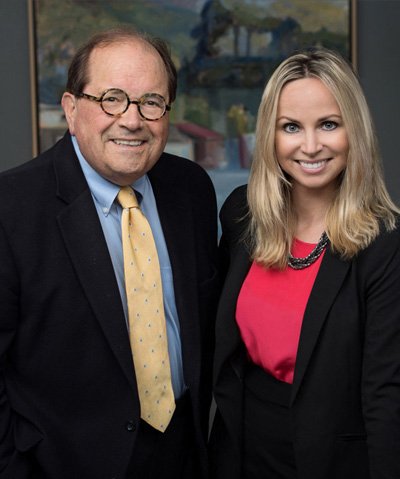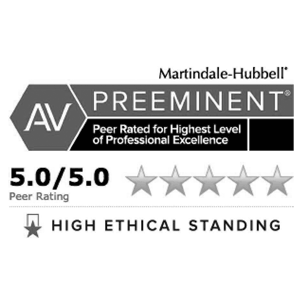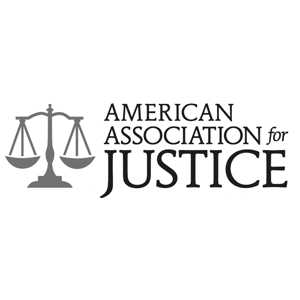A San Francisco boating accident lawyer represents victims injured on Bay Area waterways. Our attorneys handle complex maritime law claims while managing Coast Guard investigations, insurance disputes, and strict reporting deadlines to secure compensation for medical bills, lost wages, and pain and suffering.
Alexander Law Group LLP aggressively fights for injured boaters, passengers, swimmers, and ferry riders throughout the San Francisco Bay. Our team uses technical evidence and maritime regulations to build strong cases against negligent operators and companies. Contact us now for a free consultation about your boat accident injuries.
Table of Contents
- San Francisco Boating Accident Claims – What to Know
- Why Choose a Maritime Injury Lawyer at Alexander Law Group LLP
- How to File a San Francisco Boating Accident Claim
- Compensation Available in Boating Accident Cases
- Common Types of Bay Area Boating Accidents
- Who is Liable in a Maritime Accident?
- Critical Evidence in Boating Accident Cases
- Special Reporting Requirements for Boat Accidents
- Steps to Take at Home After a Boating Accident
- Frequently Asked Questions: San Francisco Boat Accidents
- Contact a San Francisco Maritime Injury Attorney
San Francisco Boating Accident Claims – What to Know
- Coast Guard reporting required within 48 hours for serious injuries, deaths, or property damage over $2,000
- Federal maritime law generally provides three years to file injury claims, longer than California’s two-year limit
- Boating under the influence (BUI) carries the same BAC limits as DUI in California
- Ferry accidents involving WETA or SF Bay Ferry trigger six-month Government Claims Act deadlines
- Multiple parties may share liability, including operators, owners, rental companies, and charter services
Why Choose a Maritime Injury Lawyer at Alexander Law Group LLP

Alexander Law Group LLP combines maritime law knowledge with proven trial experience in Bay Area courts. We’ve spent years building relationships with marine experts, accident reconstructionists, and medical professionals who help prove our clients’ cases, when necessary. These connections, paired with our understanding of local waterways from the Golden Gate to the Delta, give our clients a significant advantage.
Our contingency fee structure eliminates financial risk for injured victims. You pay nothing unless we win your case – no retainer, no hourly bills, no costs unless we secure compensation. This arrangement ensures we’re fully invested in your success. We only succeed when you receive fair compensation for your injuries.
Insurance companies know which firms prepare every case for trial versus those seeking quick settlements. Alexander Law Group’s reputation for taking cases before San Francisco juries helps drive settlement negotiations. We present cases to jurors who understand Bay Area boating culture, marine traffic patterns, and the serious injuries waterway accidents cause. This local knowledge and willingness to go to trial translates into compensation for our clients.
How to File a San Francisco Boating Accident Claim
Filing a boating accident claim requires careful attention to deadlines and strategic decision-making about which legal avenue provides the best recovery. The process differs significantly from typical car accident claims due to overlapping federal and state jurisdictions.
Critical Filing Deadlines
Time limits vary dramatically depending on the type of claim and parties involved. Federal maritime claims generally allow three years from the accident date, providing more time than California’s two-year personal injury statute of limitations. However, these longer deadlines can create a false sense of security that leads to lost evidence and weakened cases.
Government entity involvement drastically shortens deadlines. Under California’s Government Claims Act, ferry accidents with WETA or SF Bay Ferry require filing administrative claims within six months. Missing this deadline typically bars any recovery, regardless of injury severity.
Choosing a Legal Framework
Boating accident victims may pursue claims under federal admiralty law, California state law, or both. Federal maritime law provides certain advantages, including longer statutes of limitations and specific maritime legal doctrines that favor injured passengers. State law claims may offer benefits like proximity to local courts and familiar legal standards.
The choice depends on factors including where the accident occurred, the types of vessels involved, and applicable insurance coverage. Accidents on navigable waters usually fall under federal jurisdiction, while incidents in small lakes or near shore may involve state law. Some cases benefit from filing under both jurisdictions to preserve all options.
The Claims Process
After the initial filing, the claims process involves investigation, negotiation, and potentially litigation. Insurance companies conduct their own investigations. Having legal representation levels the playing field by allowing you to conduct your own investigation that matches or exceeds theirs.
Settlement negotiations require understanding the true value of maritime injury claims. Experienced counsel knows how Bay Area juries value boating accident cases and uses this knowledge to drive fair settlements.
If settlement talks fail, filing a lawsuit becomes necessary. Maritime litigation involves unique procedures and deadlines different from those of typical personal injury cases. Cases may proceed in federal or state court depending on the legal framework chosen. Federal admiralty courts follow different procedural rules than state courts, affecting everything from jury trial rights to damage calculations.
Throughout litigation, opportunities for settlement continue as trial approaches and liability becomes clearer. Discovery proceedings reveal evidence that may strengthen your position or expose weaknesses in the defense. Depositions of vessel operators, witnesses, and experts build the factual record supporting your claim.
Compensation Available in Boating Accident Cases

Maritime accidents cause severe injuries requiring comprehensive compensation. California and federal law recognize the unique dangers of waterway accidents, allowing recovery for extensive damages.
Economic damages cover measurable financial losses:
- Medical expenses: Emergency water rescue, hospital treatment, surgeries, rehabilitation, and future care needs
- Lost wages: Time missed from work plus reduced earning capacity from permanent injuries
- Property damage: Destroyed boats, equipment, electronics, and personal belongings
- Transportation costs: Travel to specialists and medical appointments
- Home modifications: Changes needed for accident-related disabilities
Non-economic damages address personal impacts:
- Pain and suffering: Physical agony from injuries and ongoing limitations
- Emotional trauma: Fear of water, anxiety, PTSD from near-drowning experiences
- Loss of enjoyment: Inability to participate in water activities or other hobbies
- Scarring and disfigurement: Permanent marks from propeller strikes or crushing injuries
Wrongful Death Claims
When boating accidents cause fatalities, surviving family members can pursue wrongful death damages. These include funeral expenses, lost financial support, and compensation for loss of love and companionship. California law specifies eligible family members, typically spouses, children, and sometimes parents or dependents.
Common Types of Bay Area Boating Accidents
San Francisco Bay’s conditions create various accident risks. Each type requires specific legal approaches and evidence.
Recreational Boating Collisions
Weekend sailors and powerboaters crowd the Bay, leading to collisions from:
- Failure to maintain proper lookout
- Violating right-of-way rules
- Speeding in congested areas like McCovey Cove
- Equipment failures from poor maintenance
- Operator inexperience in Bay conditions
Jet Ski and Personal Watercraft Accidents
Jet ski accidents cause severe injuries due to high speeds and minimal protection:
- Collisions with other vessels or fixed objects
- Passengers thrown at high speed
- Wake jumping accidents
- Rental company negligence in safety instruction
- Mechanical failures from improper maintenance
Ferry Accidents
WETA and SF Bay Ferry vessels carry thousands daily. Accidents include:
- Slips and falls on wet decks
- Gangway and boarding injuries
- Collisions with recreational vessels
- Wake damage to smaller boats
- Passenger injuries from sudden stops
Ferry accidents trigger special six-month claim deadlines under California’s Government Claims Act.
Charter and Tour Boat Incidents
Tourist vessels operating from Fisherman’s Wharf and Pier 39 must maintain passenger safety:
- Overcrowding leading to instability
- Inadequate safety equipment
- Untrained crew members
- Failure to monitor weather conditions
- Negligent operation near Alcatraz or Golden Gate
Kayak and Paddleboard Accidents
Human-powered vessels face unique risks:
- Struck by motorboats failing to see them
- Wake injuries from passing vessels
- Rental company providing defective equipment
- Inadequate safety warnings about conditions
- Tour guide negligence in dangerous areas
Who is Liable in a Maritime Accident?

Determining responsibility in boating accidents requires analyzing multiple potential defendants and applicable laws.
Operator Negligence
Boat operators owe duties to passengers and other vessels. Negligent operation includes:
- Operating under the influence of alcohol or drugs
- Excessive speed for conditions
- Violating navigation rules (COLREGS)
- Inadequate lookout or inattention
- Operating beyond skill level
California treats BUI like DUI – 0.08% BAC for recreational vessels and 0.04% for commercial operators.
Vessel Owner Liability
Owners bear responsibility for:
- Maintaining seaworthy vessels
- Providing required safety equipment
- Ensuring operators are qualified
- Addressing known dangerous conditions
- Carrying adequate insurance
Rental and Charter Company Responsibility
Commercial operators face heightened duties:
- Providing safe, well-maintained vessels
- Screening and training operators
- Giving adequate safety instructions
- Monitoring weather and water conditions
- Maintaining required Coast Guard certifications
Government Entity Liability
Public agencies operating ferries or patrol boats may face liability for negligent operation or dangerous conditions. These claims require compliance with the Government Claims Act’s six-month filing deadline.
Critical Evidence in Boating Accident Cases

Strong maritime claims require comprehensive evidence gathered before it disappears or degrades.
Electronic Data
- GPS tracks showing vessel movements and speeds
- AIS (Automatic Identification System) data from larger vessels
- Engine computer logs recording operations
- Depth finder and fish finder recordings
- VHF radio communications
Physical Evidence
- Vessel damage patterns indicating impact angles
- Propeller marks or paint transfers
- Safety equipment condition and availability
- Maintenance records and inspection reports
- Alcohol containers or drug paraphernalia
Environmental Factors
- Weather conditions at the time of the accident
- Tide levels and current speeds
- Visibility and lighting conditions
- Water traffic density
- Known hazards or construction zones
Documentation
- Coast Guard accident reports
- Harbor patrol investigations
- Rental agreements and waivers
- Insurance policies and coverage limits
- Medical records detailing injuries
Special Reporting Requirements for Boat Accidents
The U.S. Coast Guard mandates immediate notification when certain thresholds are met. Any accident involving death or disappearance requires immediate reporting by the quickest means possible – typically VHF radio or emergency phone call. Injuries that require medical treatment beyond basic first aid also trigger immediate reporting obligations. Property damage exceeding $2,000 or the complete loss of any vessel requires notification as well.
Written reports must follow these initial notifications within specific timeframes. Deaths or missing persons cases require written reports within 48 hours of the accident. All other qualifying accidents allow 10 days for written report submission. These reports must include detailed information about the accident circumstances, vessel information, operator details, passenger lists, and injury descriptions.
Failure to file required reports can result in federal penalties and may impact insurance claims or legal proceedings. The Coast Guard uses these reports for safety analysis and may investigate serious accidents. Their findings can provide crucial evidence for civil claims, making proper reporting essential for both legal compliance and case development.
California adds its own reporting requirements through the Department of Boating and Waterways. These sometimes overlap with federal requirements but may have different thresholds or deadlines.
Steps to Take at Home After a Boating Accident

Once you’ve received initial medical care, these actions strengthen your claim:
- Continue Medical Treatment: Follow all doctors’ orders and attend appointments. Document new symptoms as they appear – water-related injuries may worsen over time.
- Preserve Physical Evidence: Store wet clothing and damaged items in sealed bags. Don’t repair damaged equipment that could serve as evidence. Photograph injuries daily as they develop.
- Document Financial Losses: Track all accident-related expenses, including medical costs, lost wages, and property damage. Keep receipts for everything from prescriptions to replacement gear.
- Request Records: Send written preservation requests for vessel data, maintenance logs, and any onboard recordings. Contact the Coast Guard for accident report copies.
- Limit Communications: Decline requests for recorded statements from insurance adjusters. Don’t discuss the accident on social media where insurers monitor activity.
- Contact Legal Help: Call Alexander Law Group’s San Francisco Office at (415) 921-1776 before accepting any settlement offers or signing documents.
Frequently Asked Questions: San Francisco Boat Accidents
How Much Does Hiring a Boating Accident Lawyer in San Francisco Cost?
Alexander Law Group LLP works on a contingency fee basis, meaning you pay nothing unless we win your case. Our fee is typically a percentage of the settlement or verdict, with no upfront costs, retainers, or hourly bills during your case.
Can I Still File a Claim if I Was Partially at Fault for the Boating Accident?
California follows comparative negligence rules allowing recovery even if you share some fault, though your compensation gets reduced by your percentage of responsibility. Maritime law contains similar principles, with specific doctrines like “Pennsylvania Rule” that may affect how fault gets allocated in navigation rule violations.
What if the Boat Operator Had No Insurance or Fled the Scene?
Your own boat insurance may include uninsured boater coverage similar to uninsured motorist protection in auto policies. Additionally, you might have claims against marina operators, rental companies, or other parties who enabled the uninsured operator’s access to the vessel.
How Are Boating Accident Settlements Calculated in San Francisco?
Settlement values depend on injury severity, medical costs, lost income, pain and suffering, and whether maritime law or state law applies. Bay Area juries historically award higher compensation for water-related accidents due to an understanding of local boating dangers, which influences settlement negotiations.
Should I Accept the Boat Rental Company’s Insurance Settlement Offer?
Rental companies and their insurers may offer early settlements, hoping to close claims before you understand your injuries’ full extent. Contact Alexander Law Group LLP before accepting any offer or signing releases that could bar future compensation.
Contact a San Francisco Maritime Injury Attorney
Boating accidents shatter lives in seconds, leaving victims struggling with serious injuries, mounting bills, and complex legal claims. Alexander Law Group LLP works to level the playing field for Bay Area boating accident victims. We understand both the technical aspects of maritime law and the personal devastation these accidents cause.

Contact Alexander Law Group’s San Francisco office at (415) 921-1776 for your free consultation. Our contingency fee arrangement means you pay nothing unless we secure compensation, removing financial barriers to quality representation.
Don’t let critical deadlines pass while dealing with injuries. Available 24/7, we’ll review your case, explain your rights, and begin preserving evidence immediately while you focus on recovery.
Alexander Law Group, LLP – San Francisco Office
Address:1 Sansome St #3500,
San Francisco, CA 94104
Phone: (415) 921-1776


